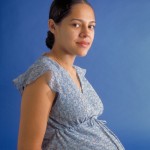While we are becoming more attentive to screening for depressive symptoms during pregnancy and the postpartum period, we may not always ask about stressful life events, especially when a woman has had what most would consider an “uncomplicated” pregnancy. This is unfortunate, given the fact that many women experience a wide variety of stressors during pregnancy which may render them more vulnerable to depression during pregnancy and the postpartum period.
To better evaluate the impact of perinatal stressors on risk for postpartum depressive symptoms, researchers used data from the Massachusetts Pregnancy Risk Assessment Monitoring System (MA-PRAMS). This group was representative of Massachusetts mothers who gave birth during 2007–2010.
PRAMS asked mothers if they had experienced 13 specific stressful events during the 12 months before their infant was born (yes vs. no). The stressors were categorized into 4 groups: partner, traumatic, financial, and emotional. Mood was assessed at 3-4 months using a Likert-like scale with questions similar to the Patient Health Questionnaire-2 (PHQ-2).
Of the 5,395 participants, 58% reported one or more stressors (partner=26%, traumatic=16%, financial=29%, emotional=30%). The findings of this study are consistent with previous studies demonstrating an association between stressful life events and risk for postpartum depression. Reporting of > 1 stressor was associated with a 1.68-fold increased risk of postpartum depressive symptoms. The strongest association was observed with partner stress (OR=1.90, 95% CI: 1.51–2.38). Similar to previous studies, there appeared to be a dose-dependent relationship between stress and PDS; the risk was 2.39-fold higher in women with 4-6 stressors and 3.5-fold higher in women with 7 or more stressors.
In this study, only 38% of the mothers with postpartum depressive symptoms sought help. Mothers with partner-related stressors were less likely to seek help compared with mothers with other types of stressors.
In the earliest studies identifying risk factors for postpartum depression, stressful life events were identified as robust predictors of postpartum depression. While there may be certain modifiable risk factors for postpartum depression, stressful life events are usually neither preventable nor predictable. Thus, we must screen women not only for depressive symptoms during pregnancy and the postpartum period, we must also work to identify women who have experienced stressful life events as they are more vulnerable to depression during pregnancy and the postpartum period.
What is particularly concerning in this study is the finding that so few of the women with postpartum depression seek out help. Despite our efforts to educate new mother and health care providers about perinatal depression, it seems that there are still considerable obstacles to treatment. While we can mandate screening and identify women at risk for perinatal depression, we must work to promote greater access to treatment.
Ruta Nonacs, MD PhD
Stone SL, Diop H, Declercq E, et al. Stressful events during pregnancy and postpartum depressive symptoms. J Womens Health (Larchmt). 2015 May; 24(5):384-93.


![By Vera Kratochvil [Public domain], via Wikimedia Commons](https://womensmentalhealth.org/wp-content/uploads/2015/06/Mother_Kissing_Baby-150x150.jpg)





Leave A Comment